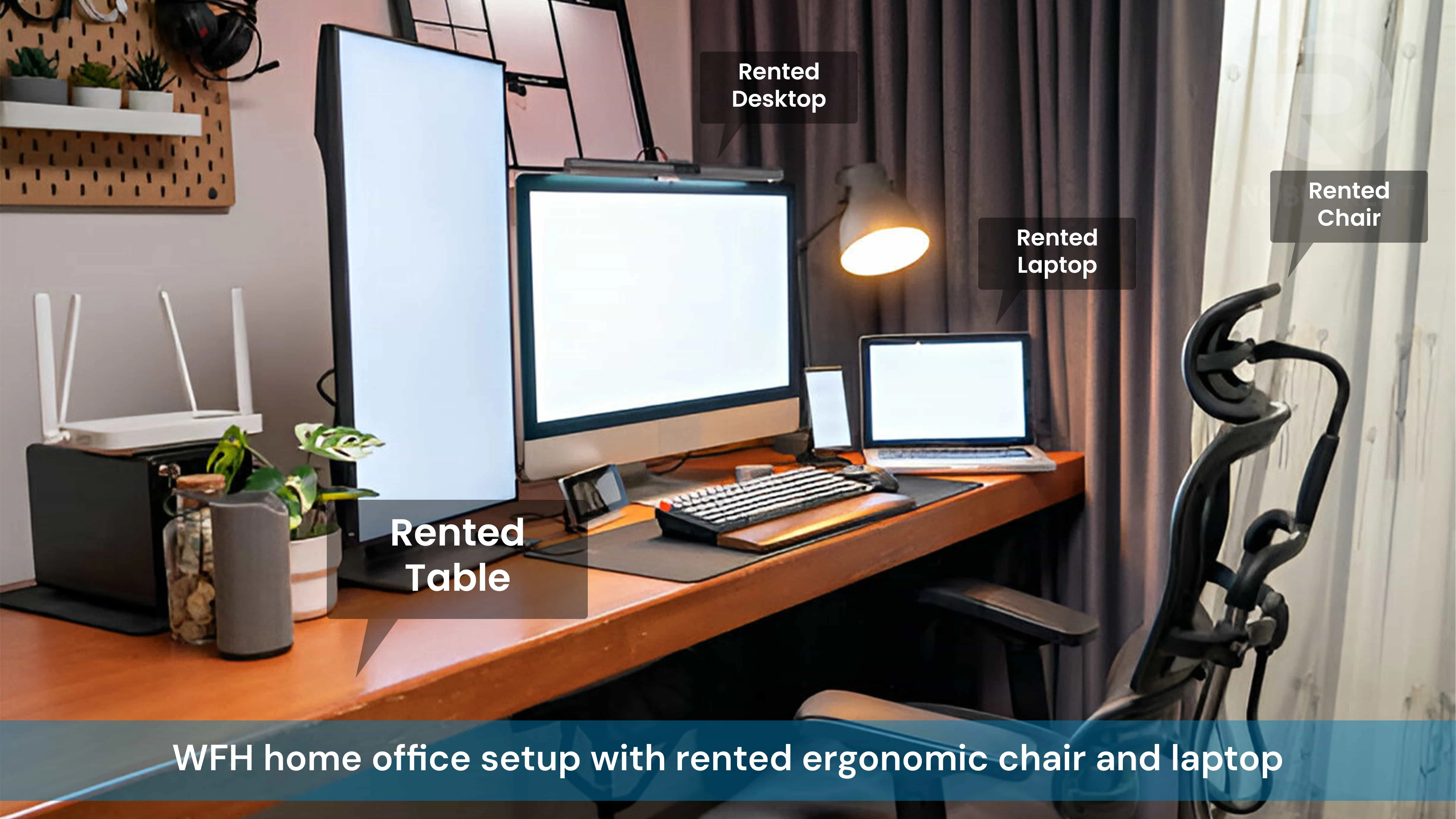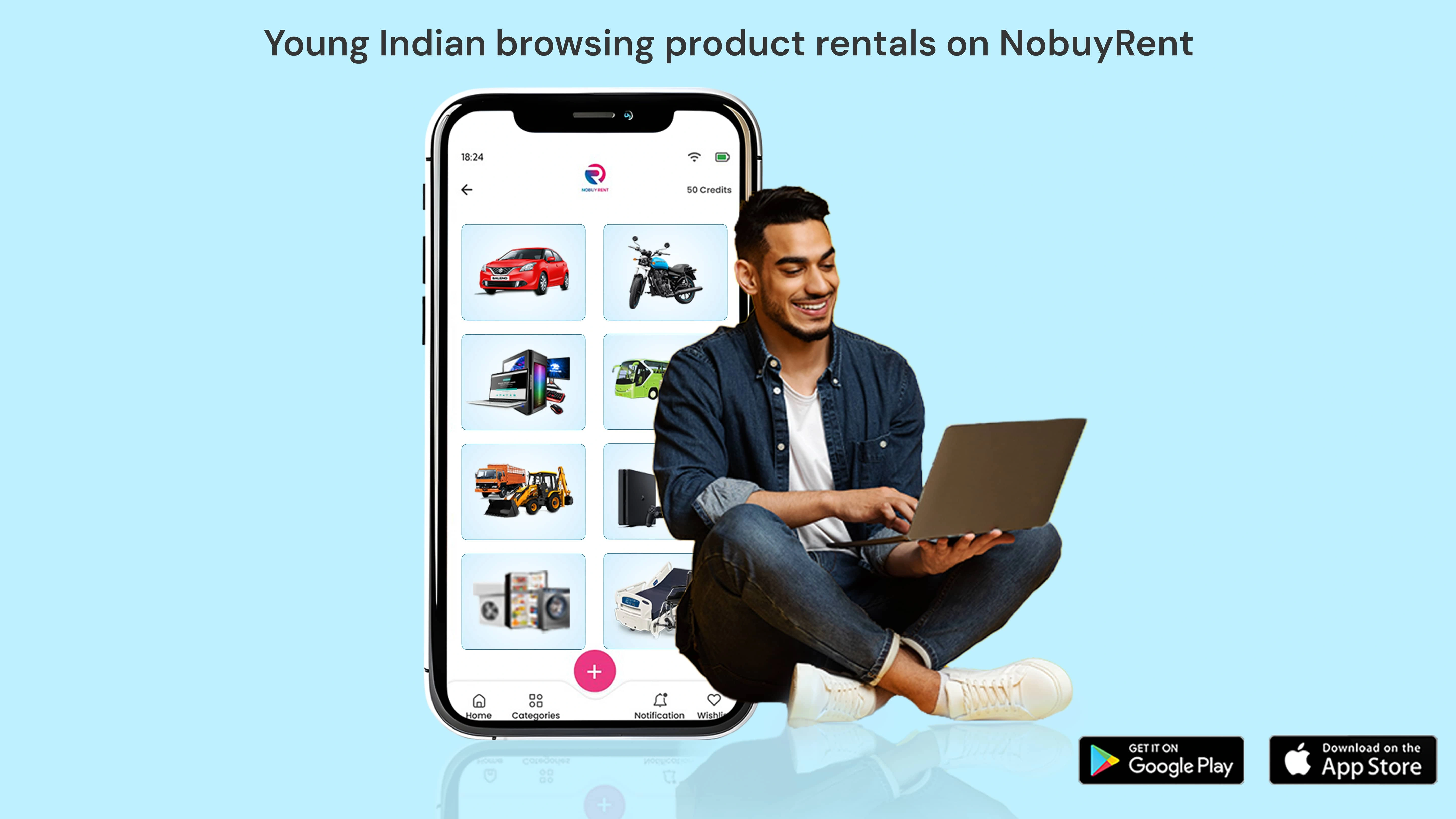
COVID-19’s Digital Disruption: A Catalyst for the Rental Economy
The pandemic forced over 700 million Indians online during lockdowns. From Zoom calls and online classrooms to e-commerce and digital payments, COVID-19 accelerated India's digital transformation at record pace.
- UPI transactions crossed ₹10 trillion in just one month in 2021 (NPCI)
- Online shopping adoption grew by 88%, especially in Tier 2 and Tier 3 cities (Unicommerce 2022)
- Consumers began prioritizing 'access over ownership', a shift further reinforced by financial uncertainty and lifestyle fluidity
This behavioral change gave a massive boost to rental platforms—especially for non-real estate products like:
- Home office supplies (computers, webcams)
- Office Items (like computers, copiers, printers, etc)
- Appliances for Home (like washing machines, refrigerators, etc)
- Traveling and outdoor usable items
- 2-wheelers, cars, e-bikes
- Event supplies and tools
The Rise of the Product Rental Market Post-COVID
1. Remote Work & Learning Created Instant Demand

As millions scrambled to set up home offices, furniture and laptop rentals soared. Brands like Furlenco and Rentomojo reported:
- 3x surge in ergonomic chair rentals
- Laptop rentals rose by over 120% in Q2 2020 alone
Platforms like NobuyRent helped consumers avoid big upfront investments by providing easy, monthly rental options.
2. Migrant Urban Workforce Chose Flexibility
Urban youth, students, and gig workers didn’t want to buy bulky goods when moving frequently. Renting became the go-to:
- Bed, mattress & fridge combos were top categories
- Short-term rentals gained traction among students returning to campus
3. Financial Caution & Value-Conscious Behavior
COVID-era pay cuts and job losses led to more conservative spending:
- 53% of Indians delayed large purchases like electronics
- Rental platforms offered affordable alternatives with no long-term commitment
- Subscription and rent-to-own formats picked up in urban India
4. A Minimalist and Sustainable Lifestyle
During the pandemic, environmental consciousness peaked.. Renting is equated with:
- Reducing waste and over-consumption - Recycling correctly stored items rather than purchasing new
- Reusing well-maintained items instead of buying new
- Living light—especially for digital nomads and students
Key Product Rental Categories That Boomed Post-COVID
- Electronics: Remote work, online education – Rental growth: +120%
- Furniture: WFH setups, frequent movers – Rental growth: +300%
- Appliances: Costly to buy, easier to rent – Rental growth: +200%
- 2-Wheelers: Contactless commuting, gig economy – Rental growth: +150%
- Event Equipment: Weddings & parties with limited budgets – Rental growth: +170%
Research-Backed Data on the Rental Economy
- India’s online product rental market is expected to reach ₹70,000+ crore by 2030, growing at a CAGR of 14%
- Global circular economy models predict that access-based models will outpace ownership models by 2035
- Startups in the rental space attracted over $120M in funding post-2020
The Role of Platforms Like NoBuyRent in the New Economy

NobuyRent is India’s emerging peer-to-peer rental marketplace, enabling people and businesses to:
- Monetize underutilized products
- Offer rentals for furniture, gadgets, tools, gear & more
- Seamlessly list, rent, and pay—all online
The platform is like the UPI for rentals—reliable, fast, and scalable
Conclusion – Renting is the New Buying
COVID-19 has permanently changed the way Indians consume. In an era where:
- Financial flexibility is key
- Ownership is optional
- Digital access is universal
… renting everyday products is no longer just practical—it’s preferred.
Platforms like NobuyRent are leading this charge, empowering users to save money, live lighter, and embrace sustainability—one rental at a time.


